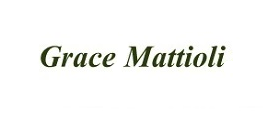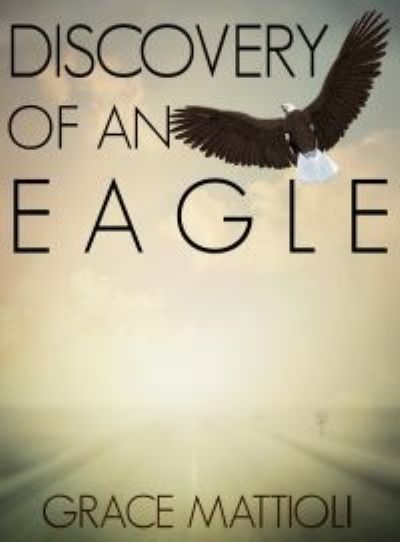Discovery of an Eagle, the second book in The Greco Family Trilogy, will be released in May! Told from Cosmo Greco’s point of view, readers will see him awaken to the magic in life and go on a quest for true happiness. Early reviewers such as Kirkus Reviews have called this book a “transformative road trip story.” Midwest Book Review has called it a “soaring stories that takes readers on a journey to new places and new possibilities.” I hope you enjoy the following opening scene from this novel.
When Cosmo Greco learned of the layoff, the first thought that popped into his head was how he’d divide the rest of his day between the comic bookstore and the café. He blamed his apathetic response on not being fully awake and blamed his fatigue on the barista, whom he suspected had accidentally given him decaf instead of regular. In fact, he was so tired that when he arrived in his staff area and noticed his colleagues shoving the contents of their desks into boxes, he didn’t question why they were doing this. He just went to his desk, sat down, and checked his email as he did every day.
The message that told of the layoff was highlighted with a bold red exclamation point. As he read it, his boss, Pete, appeared at his desk, slouching over the gray fabric partition intended to provide Cosmo with a sense of privacy. Pete tried to appear remorseful by making a frown, but Cosmo could see delight shining through his alien eyes.
“So sorry about the layoff, Cosmo,” he said in an unconvincingly sad voice. He resented Cosmo from the first day they met, a little over eight years ago, when the company hired him at the age of twenty—a college dropout who came to the interview in a T-shirt and jeans.
“Well, thanks Pete,” Cosmo said, looking at his former boss with a sincere expression. Pete, unsuspecting of this response, furled his brows in confusion. Cosmo would miss playing the silent war game these two had played for eight years—a game which Cosmo had always won. Even now, Pete walked away from his desk, defeated.
As Cosmo stared at his desk, he thought it might look better to him now that he knew he wouldn’t be sitting at it much longer, but it looked just as bland as ever. An off-white slab of plastic taken over by dirty coffee cups, pens—half of which didn’t work—crumbled up aluminum wrappers from candy bars, stray papers, post-it notes, inter-office manila envelopes, and an economy-sized bottle of Aleve to relieve his daily headaches. A dying plant sat on the edge of it as if wanting to fall off. He couldn’t throw it out because his mom had given it to him. The only part of his desk that looked better than usual was his twenty-seven-inch definition monitor. Oh, how he loved to play games on that computer.
He got up to talk to his colleague Dario about the layoff. Dario’s desk was on the other side of the staff kitchen, where Cosmo stopped to get a cup of coffee.
“Hey, Dario,” Cosmo said as he approached his desk. He still wasn’t feeling much about the layoff but tried to act sad in support of his friend. He took a big gulp from his coffee, hoping that the caffeine would wake him up so that he could feel less indifferent.
“Hey,” Dario said without looking up as he continued to clear out his desk. He hid behind a pair of big-rimmed glasses and his black hair, which hung like string beans in front of his face.
“Do you know how many of us got laid-off?”
“I don’t know. I can’t say that I care either.”
“It’s only a lay off,” Cosmo said, attempting a cheerful tone. “It could be temporary.”
“Yeah right.”
“You never know.”
“Sometimes you do.”
“You’d think seniority would count for something.”
“You’d think,” Dario said, who seemed incapable of being shaken out of his cynicism.
Cosmo went back to his desk to pack, and as soon as he sat down, a wave of questions flooded his mind. What would he do now? What about health insurance? What if he got sick? Really sick? How tough was it going to be to get another job? Would he have to buy a suit to wear for interviews? What would he put on his résumé? Should he take his dying plant home and try to resuscitate it?
He squashed the questions down so that he could pack up and get out of there. When he finished packing, he said goodbye to Dario and a few other colleagues. He took the elevator to the gray granite lobby where Muzak played loudly. He walked out the door and almost collided with someone. His near collision shook away any remnants of worry over his job loss, and as soon as he stepped out of the building, he felt as free as a bird that had escaped captivity from a small cage. An oak tree with yellow and orange leaves sat on the other side of the street. It must have been there for as long as he worked at the building, but he had never noticed it.
The tree made him want to see more trees. He wanted to see all the trees that the city could show him, so he walked home through a part of the West Philadelphia neighborhood filled with trees and the scent of fall. It was part of the University of Pennsylvania campus where he studied astronomy and physics about ten years ago. He saw lots of trees in every color of the autumn rainbow. He walked slowly, so he could stare at each one for as long as possible, almost as if to save the image of every tree and every leaf in his brain.
He remembered how he used to walk with a bounce in his step, as his head bobbed back and forth. But the bounce had gone, and his head stayed stationary. He wondered if his head was static out of being uncomfortable, with a baseball cap that sat tightly upon it. He wore a hat to constrain his black, curly, wild hair, but it popped out in places as if wanting to break free. He never left home without a hat. He kept one on even when he had a headache. When he passed a trash can, he felt tempted to take it off and throw it out, but something in him wouldn’t let him take it off. The hat did serve the purpose of keeping his hair out of his eyes, so that his view of the trees was unobstructed.
As he looked at the trees, he remembered how he loved fall as a child. Fall meant school was starting, and school meant learning, and gathering knowledge was what he loved to do most in the world. He’d get excited each fall when he’d first notice a leaf that had changed its color. And even though he knew that the leaves changing colors meant that they were dying, he never felt death in the air. He felt life, renewal, and revival.
Grace Mattioli is the author of the Greco Family Trilogy books, including Olive Branches Don’t Grow on Trees, Discovery of an Eagle, and The Bird that Sang in Color. These books are available from all major online book sellers, including Amazon, Barnes & Noble, and Apple Books.




